Blog post by Tom Kuipers, Petar Koljensic & Maike Simmes
Reading time: 4 min
Smart Urban Mobility (SUM) at AMS Institute
AMS Institute is a multidisciplinary institute and works on six thematic programs: Metropolitan Food Systems, Urban Energy, Responsible Urban Digitization, Circularity in Urban Regions, Climate Resilient Cities and Smart Urban Mobility. Within the institute the topic of mobility and how mobility impacts the urban space is of major importance. In this blog series we show and tell you more about our work, projects, and research. In this first blog we introduce you to the Smart Urban Mobility program 2022 and our team.
AMS Institute and its connection to the city
The Smart Urban Mobility program focuses on different topics, related to Amsterdam’s challenges. We currently have a portfolio of over 30 research and innovation projects, either finished, currently running or in development. Our ambition is to work impact-driven and in close collaboration with the policy makers and innovation office of the city. For 2022 the main focus areas in the program are: ‘50 to 30’, Low Car City, Hubs & Shared Mobility, Innovation centre for Mobility.
4 program lines in 2022
Low Car City Amsterdam investigates a future in which private cars do not play an as important role in Amsterdam as they do now. We try to find solutions on how to promote alternative modes of mobility and persuade people to choose more sustainable options to travel to meet the city’s ambitions on sustainability goals.
Within the 50 to 30 program line, we take the transition towards 30km/hr in Amsterdam that is going to take place in 2023 as a driver for new interventions in public space. Together with Amsterdam and fellow research organisations we will look into the multi-faceted impact this change will and can bring to the city.
In Hubs & Shared Mobility we research the role these concepts can play as a solution for the scarcity of public space and the redesign of cities. What role can shared mobility play in a spatial, social, and sustainable future of Amsterdam?
Innovative Mobility Management program line deals with the dynamic use of public space and multimodal mobility in the city. We are trying to find best ways to manage and regulate public space and traffic flows.
Beside the program lines we work on Innovation centre for Mobility. Closely together with the city of Amsterdam we focus on two major challenges: How to make mobility truly sustainable and how to make sure that the mobility system of the future is inclusive. Both challenges relate to the development of the city’s Mobility Centre of the Future.
The SUM team at AMS Institute
Several principal investigators (PI’s), research fellows (RF’s), program developers, researchers, (MADE) students, and interns work on the program or elements of it. Here is a short introduction to the daily team at AMS Institute.
“Solutions for mobility are not a goal in itself. It’s all about creating impact in our cities! We need to work together to achieve that.”
Tom Kuipers - Program Developer Smart Urban Mobility

Tom initiates and coordinates the research & innovation program and connects scientific knowledge with public and private partners.
“The beauty, and the challenge, with mobility is that it touches so many aspects. To develop the right solutions for today and tomorrow requires different disciplines, use cases and views, data insights and a lot of creativity of all of us!”
Maike Simmes - Program Developer Smart Urban Mobility
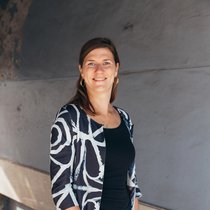
Maike initiates and coordinates the research & innovation program and connects scientific knowledge with public and private partners.
“Hubs are where policy and innovation meet, combining these two effectively is the key to future mobility.”
Sander Oudbier - Program Developer Smart Urban Mobility
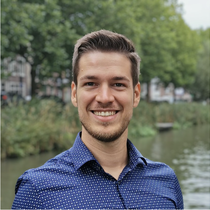
Within the SUM team Sander develops the program line Hubs & Shared Mobility.
“Future proof mobility must not only be shared but also massive.”
Jaime Soza-Parra PhD - Research Fellow, Post-doc at TU Delft
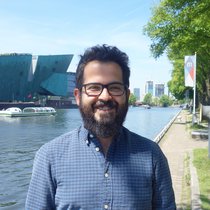
Jaime’s research is focused on the idea of a car-independent society, what are their key determinants, and who are those more open to shift out of cars.
“Multidisciplinary, collaborative, responsible effort today leads to a better tomorrow - within mobility, and beyond.”
Marco Rinaldi PhD - Research Fellow, Assistant Professor at TU Delft
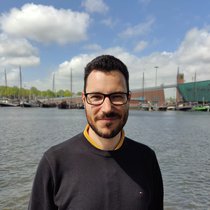
Marco leads research in mobility management, across multiple modalities, with focus on the disruptive potential of novel technologies, such as AI.
“I strongly believe that rethinking of urban mobility would allow us to reshape our cities for better.”
Petar Koljensic - Intern
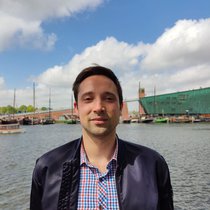
Petar is working on visualizing of the SUM program, master thesis research based on 15-minute city concept and team’s blog posts.
“Data-driven approaches are crucial for addressing the urban mobility challenges and moving toward a more sustainable city.”
Hamzeh Moghaddam BSc - Graduaton Intern
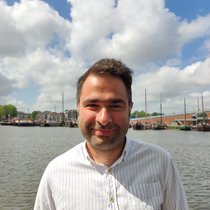
Hamzeh is working on developing a demand prediction model for shared mobility to help policymakers and operators to improve their performance.
“Mobility is only real when shared!”
Pietro Podesta BSc - Graduation Intern
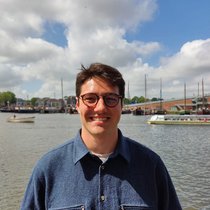
Pietro is working on the validation and improvement of the decision-support-tool to identify high potential hub locations developed for SmartHubs in Amsterdam.
“Even cities like Amsterdam still have some way to go to reach a truly sustainable and human-centered mobility system.”
Kai Röth PhD - Research Intern
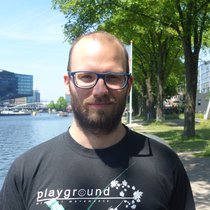
Kai is doing research on how lower speed limits effect mobility and livability, and what the lessons are for Amsterdam when it changes its maximum speed from 50 to 30 km/h.
Coming next
Stay tuned for the upcoming blogs about our activities at AMS Institute. In the next blog post we will tell you more about the role of Virtual Reality in Urban Experimentation.
Engage with us if you have great ideas for the topics we are working on. We would love to hear from you.
Find more about SUM and our contact details on: https://www.ams-institute.org/urban-challenges/smart-urban-mobility/